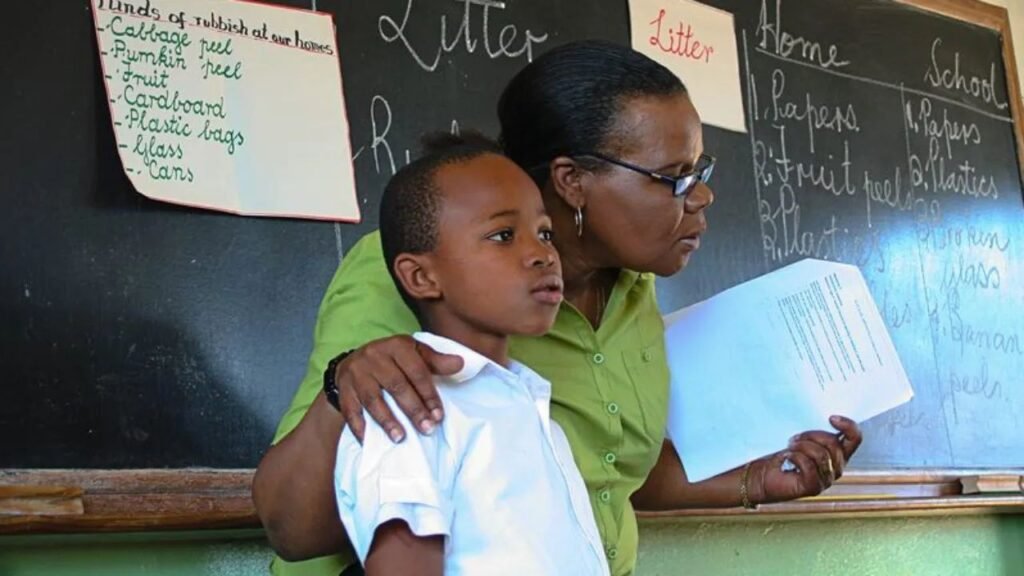In what may become a landmark moment for South Africa’s education workforce, the government has announced a 5.5% salary increase for public sector workers in 2025, extending to teachers across the country. Although some reports exaggerated the news with claims of salaries having “doubled,” the reality is a steady and deliberate approach to improving teacher pay and retaining talent, particularly in regions that struggle to attract qualified educators.
Examining the Real Impact of the Pay Adjustment
Teachers have long expressed concern over low remuneration and challenging working conditions. The formal publication of the revised pay structure by the Department of Basic Education in June 2025 brought clarity. Entry-level teachers will now receive an annual salary of approximately R163,178, equating to around R13,600 per month a notable rise from the previous R154,671 package. At the upper end of the pay scale, seasoned professionals are seeing monthly earnings exceed R106,000, reflecting the system’s growing recognition of experience and long-term service.
Union Perspectives Highlight Ongoing Gaps
Despite these positive developments, major teacher unions such as the South African Teachers’ Union (SAOU) have voiced their dissatisfaction. They argue that current salary levels still fall short of meeting the demands of the profession, suggesting that a fair range should be between R25,000 and R35,000 per month. Union leaders emphasize the need to align teacher wages with the growing cost of living and the critical role educators play in society.
Government Allocates Billions to Sustain Teaching Jobs
Beyond the salary hike, the government has committed significant financial resources to safeguard education employment. The National Treasury has allocated R19.1 billion over the medium term to prevent the loss of nearly 11,000 teaching positions. This effort aims to provide much-needed stability to a system under strain from demographic shifts and tight public finances.
Rural Incentives Return as a Tool to Bridge Inequality

In a move to address regional imbalances in education quality, a R500 million incentive program has been reinstated for teachers willing to serve in rural and underserved communities. This initiative draws parallels to India’s “Shikshamitras” system local, often non-traditional educators deployed to fill gaps in hard-to-reach areas. South Africa’s approach similarly seeks to attract skilled teachers to schools that are typically understaffed and overlooked.
Confronting the Shortage of Specialized Teachers
South Africa continues to face a critical shortage of teachers, particularly in essential disciplines such as mathematics, science, and technology. Overcrowded classrooms and unfavorable learner-to-teacher ratios are persistent issues. By committing to financial incentives and structural reform, the government is signaling that neglecting the education workforce is no longer a viable path.
Could Community-Based Teaching Become Part of the Strategy?
Though South Africa doesn’t yet formally adopt a community-teaching model like India’s, the renewed focus on local engagement through incentives suggests potential for similar strategies. Informal or auxiliary teaching roles may offer short-term solutions in regions where recruiting fully qualified professionals remains a challenge. These roles could play a key part in ensuring continuity of education in communities that have long been underserved.
Sustaining the Momentum Beyond Salary Increases
While the 5.5% raise is an important morale booster, experts warn that salary hikes alone will not resolve the systemic challenges facing the education sector. Investments in infrastructure, teacher training, and support services must accompany compensation improvements to create lasting change. Without these additional reforms, the risk remains that initial progress could stall.
Will 2025 Be a Turning Point?
The government’s renewed focus on teacher welfare offers a glimmer of hope for the profession. While challenges remain, 2025 could mark the beginning of a broader transformation in how South Africa supports and values its educators. With unions maintaining pressure and public awareness growing, this year may prove pivotal in reshaping education policy for the better.

